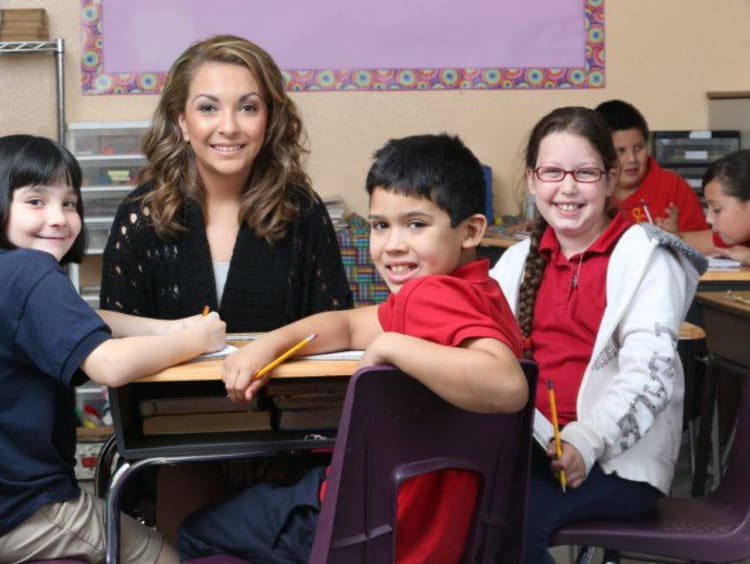4 Ways to Form Meaningful Connections with Students

As a teacher, it is so important to connect with your students. Not only does this result in a more positive classroom environment, but your students will also be more receptive to your instruction. Here are some simple ways to form meaningful connections with students:
Show Interest in Your Students’ Lives
Students love when their teachers show interest in their personal lives. It makes them feel loved and valued as a student and as an individual. One way to do this is to dedicate just a few minutes each morning or at the start of your class period to ask your students how their days are going, or if it is Monday, ask them about their weekends. This will let your students warm up to you and become interested, allowing you to make a smooth transition into the lesson for the day.
Go to Extracurricular Activities
Another great way to connect with your students is to be involved in school activities. For example, attending the school’s sporting events to cheer on your students can go a long way. This shows that you genuinely care about your students and are willing to make an effort to invest in their lives and the things they are passionate about.
Give Your Students Choices
In the classroom, giving your students choices will encourage them to be engaged in the learning process. It will also make them feel as though their opinions matter. For example, you can let your students to choose whether they want to work individually on an assignment or in groups. This will also allow you to cater to the different learning styles in your classroom.
Make Yourself Available
Last but not least, it is important to be available for your students. If you have office hours, give your students the option to come to your classroom to ask questions, use the classroom resources or simply chat with you. This will allow you to get to know your students better, as well as for them to get to know you. By making yourself available, you might be surprised by the amount of students that take your offer. In addition, you can form relationships with students that last even after they have moved on and you are no longer their teacher.
The College of Education at Grand Canyon University recognizes the diverse needs in education and takes advantage of each opportunity to create meaningful learning experiences. To learn more about GCU’s education degrees, visit our website or request more information using the button at the top of this page.
Written by Lauren Abraham, a senior earning a communications degree at GCU.
The views and opinions expressed in this article are those of the author’s and do not necessarily reflect the official policy or position of Grand Canyon University. Any sources cited were accurate as of the publish date.


